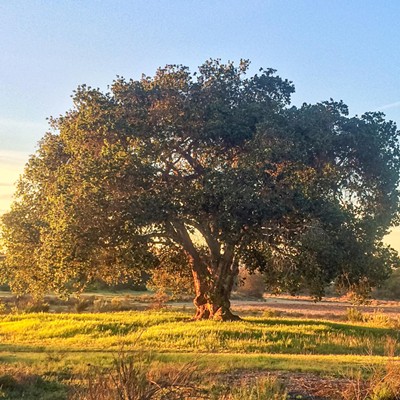• On Feb. 12, U.S. Rep. Salud Carbajal (D-Santa Barbara) announced that the U.S. House of Representatives passed the Protecting America’s Wilderness Act, a bill package aimed at preserving public lands, which includes a bill Carbajal authored. House Resolution 2199, known as the Central Coast Heritage Protection Act, would designate 250,000 acres of land within Los Padres National Forest and Carrizo Plain National Monument as protected wilderness areas. The bill would also create a 400-mile-long trail connecting Los Angeles and Monterey counties. “I am thrilled that my Central Coast Heritage Protection Act passed in the House, and I will continue working to elevate public lands and public safety along our Central Coast,” Carbajal said. “For the sake of our environment, economy, recreation, and future generations, I urge the Senate to act quickly on this bill.” The House approved the bill despite a statement from the federal Office of Management and Budget a few days prior that said President Donald Trump’s advisors would recommend he veto the bill in its current form. “The designations under this bill could impede future energy and mineral development, including development that is important to the economic and national security of the United States,” the statement states.
• During its meeting on Feb. 11, the Santa Barbara County Board of Supervisors adopted a resolution to accept $139,695 from the state to help fund outreach efforts for this year’s census, which takes place on April 1. The state is spending $90.3 million on activities related to the upcoming census, including allocating $26 million to counties and local governments. This additional funding is on top of about $350,000 the state has already allocated to the county, bringing the total amount to nearly $500,000. The county is using this funding to reach out and inform residents about the importance of participating in the upcoming census, particularly residents who are referred to as “hard to count” for various geographic and demographic reasons. According to a staff report from the Feb. 11 Board of Supervisors meeting, the state wants to ensure an accurate count because the results are used to allocate congressional seats, electoral votes, and federal funding to state and local jurisdictions. “For every [person] California missed during the Census 2020 count, the state is expected to lose approximately $1,950 per person, per year, for 10 years, in federal program funding,” the staff report states.
• Gov. Gavin Newsom released a statement on Feb. 7 responding to the news that Corteva Agriscience has stopped making chlorpyrifos, which is a pesticide linked to brain damage in children. The company announced its plans to discontinue the product the same day California’s ban of the pesticide took effect. Last October, the state reached an agreement with the company to end the sale of chlorpyrifos products in California on Feb. 6, 2020. The agreement also stipulates that growers in the state will no longer be allowed to possess or use these products after Dec. 31, 2020. “When it comes to protecting clean air and clean water in the Trump era, California has proven to be our nation’s first and strongest line of defense,” Newsom said in a statement his office released. “California stepped up when the Trump administration refused to defend the health of kids, farmworkers, and communities from chlorpyrifos. This news is a major victory for the environment and families across the country.”








